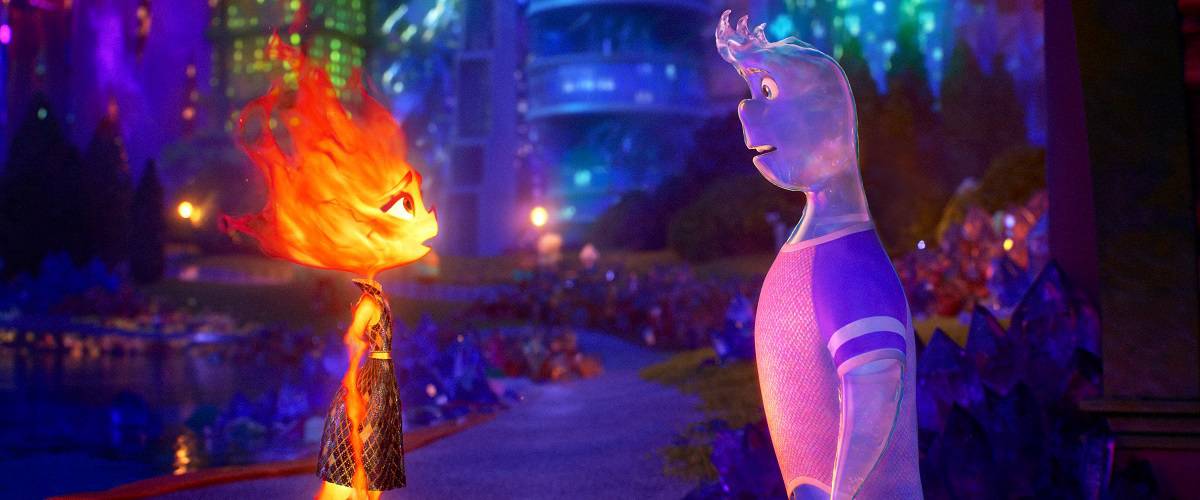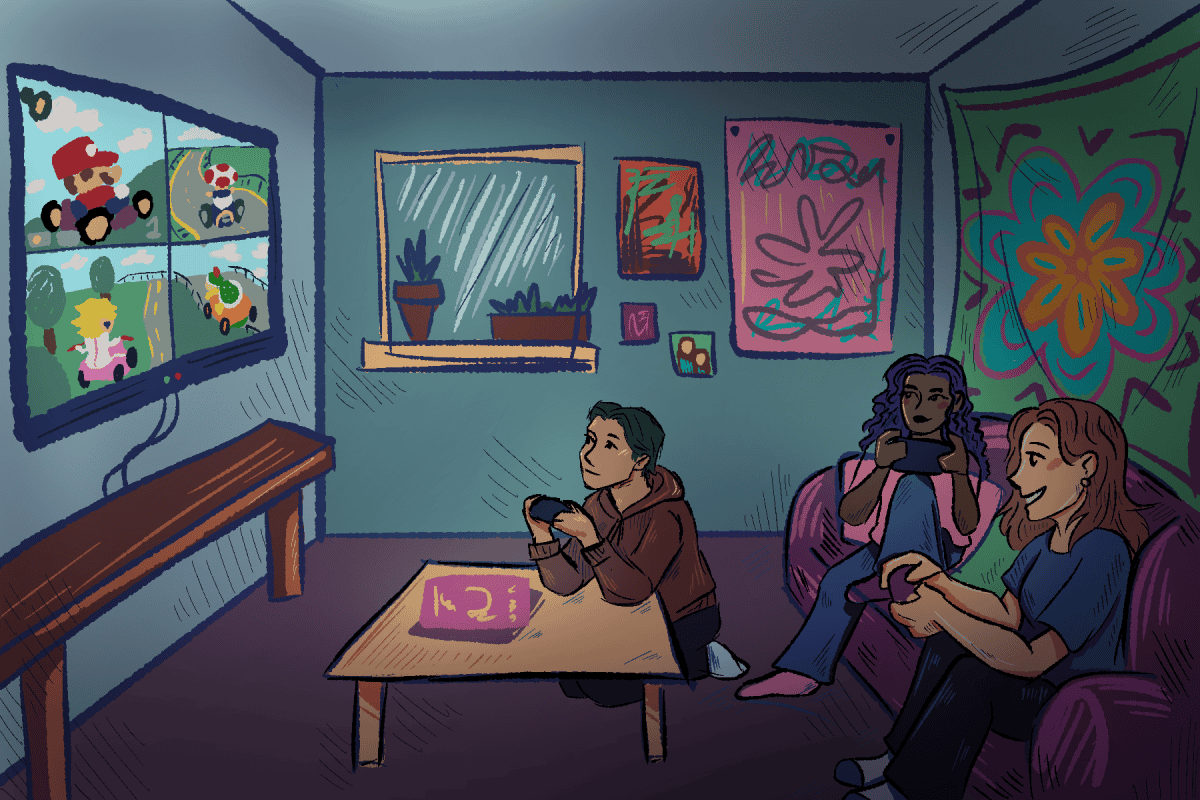The first two weeks of theatrical life for Pixar’s “Elemental” were rocky. It opened on June 16 to a domestic box office of $29.6 million, the studio’s lowest opening-weekend performance since its COVID-hindered “Onward.”
It has been met with a 76% critics’ rating on Rotten Tomatoes — the fourth lowest in the studio’s history — and a 7.1/10 on IMDb and a 3.3/5 on Letterboxd. The film’s tepid reception is the latest contribution to what many perceive as a prevailing decline in the quality — specifically, the creativity — of Pixar’s output.
Such condemnations might be too hasty.
It would be disingenuous and shortsighted to pretend that “Elemental” is flawless. And to be fair, some of its issues are concurrent with those that have popped up in Pixar’s recent releases. Most prevalent are its conceptual shortcomings: The movie falls prey to uninspiring and seemingly arbitrary showcases of its premise.
The movie centers on Element City, a sprawling metropolis housing the four elements: earth, wind, fire and water. Within this concept lie such arbitrary showcases. Clouds play a quidditch-esque form of basketball with the “Space Jam” theme as background music in what makes for an odd sports scene that feels more like a goofy video game than anything real or believable.
We’re introduced to a spry young tree who hangs out in the fire district, which is odd, given the social divide between the elements the movie establishes; who unfunnily tries to court the main character; and whose name one forgets as soon as he disappears from the screen.
These are only two examples of arbitrary and somewhat bizarre uses of concept. The former is an example of unrealistic worldbuilding within a story that tries to believably flesh out its concept, and the latter is inconsequential, unamusing, and contradictory to the film’s narrative dynamics.
What’s more is that the film occasionally struggles to properly pace its narrative and emotional beats. The central romance between Ember and Wade features a couple moments where it feels inorganic, forgoing steadiness to rapidly move the storyline forward.
There is a montage early in their relationship that brings them from mere acquaintances to a little less than official partners. Furthermore, immediately after a scene of true closeness, they engage in a stereotypical end-of-second act fight so rote and clichéd that it feels straight out of a Hallmark movie.
To reiterate, the problems lie only in some of the points of execution. What’s much more important is that on a fundamental level, “Elemental” is consummate Pixar ingenuity. It might not eclipse the glamor of ideas from previous Pixar eras, but it absolutely nails the thematic contextualization of its somewhat unremarkable concept.
One can easily see the similarities between “Elemental” and other animated films based on various nonhuman subgroups conglomerating in one melting– pot city, such as “Zootopia,” “Sing” and even “The Lego Movie.” While these are present, however, “Elemental” does much to distinguish itself, particularly in the realm of its themes and metaphors.
From the opening scene, the movie roots itself in the theme of immigration. Rather than merely limiting itself to exploring the quirky differences between its character demographics, it focuses on the logistics of those differences.
Not five minutes have passed before we get a scene in which a fire couple, newly arrived off an immigrant ship, pass through a boarding center. When they are asked their names, they respond in their own language, which is incomprehensible to the worker attending them, and are given the much simpler names of Bernie and Cinder. It is a glaring parallel to real-life immigrant experiences, especially for those who have migrated from cultures, languages and peoples vastly different than those of their destination.
“Elemental” runs with this theme from this point forward. Bernie and Cinder open their own business predicated on their own fire culture. Across flashbacks of their raising their daughter, Ember, we see their gradual adoption of the English language spoken as the default in Element City.
It reaches a point, again mirroring real life, where words and phrases of their native tongue are only flavors, sprinkled in as nostalgic complements to what is now their default as well. When we advance to the present day, we’re offered meditations on the difficulty of living in an isolated and poorer area.
The plot only begins moving when an inspector from the omnipresent, affluent governmental power brings the threat of being shut down to the shop around which Ember’s family’s life has revolved.
This metaphor isn’t always perfect. It at times falls prey to stereotypical portrayals of foreign culture, the biggest example being a scene in which Ember uses a word of the fire language, is met with confusion, and proceeds to reminiscently explain that it expresses a deep and intricate emotional concept. It isn’t necessarily wrong, but it feels a bit like over-romanticism, a condescension resulting from the self-gratification of exploring a different way of life.
Otherwise, however, the theme of immigration is refreshing. It gives the movie a unique lens through which to frame its story. The hardships of romance aren’t only because of superficial differences, but because of external social and economic circumstances. It does this all while being admirably subtle, offering beautiful animation and some tugs at viewers’ heartstrings that are signature Pixar.
It might not be a timeless classic, but it exemplifies the studio’s willingness to branch out in how it ruminates on its ideas, allowing a passionate and cultured eye to go to work. Director Peter Sohn has delivered a hit.







